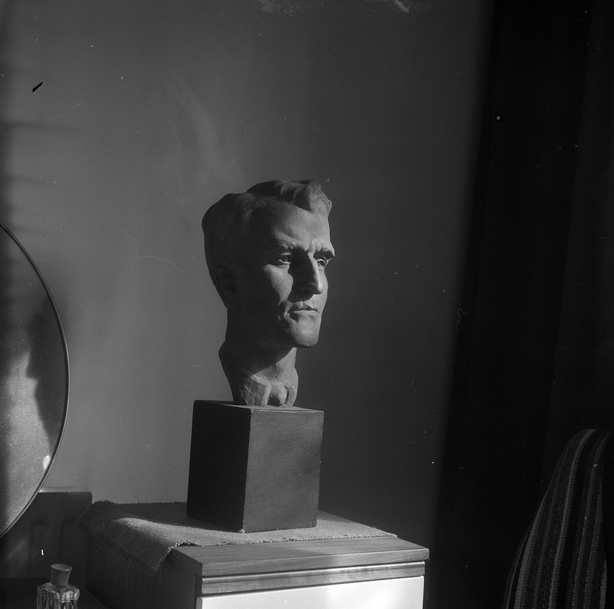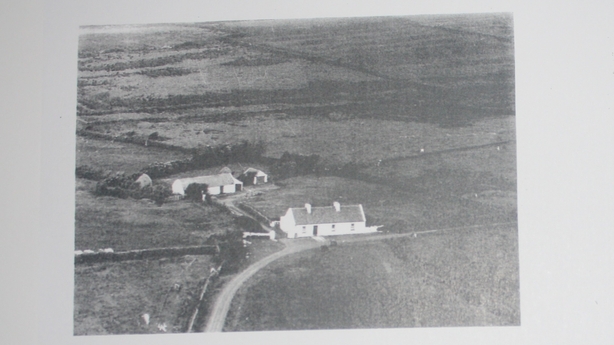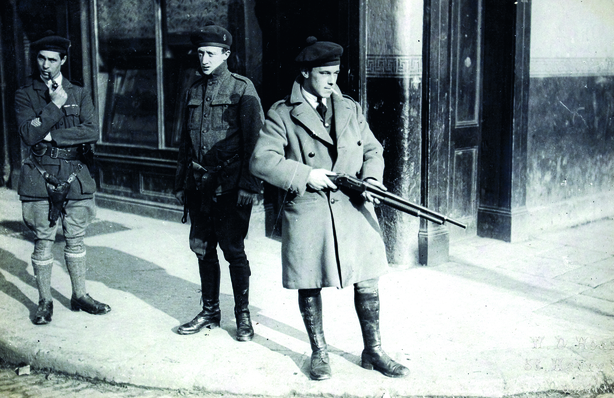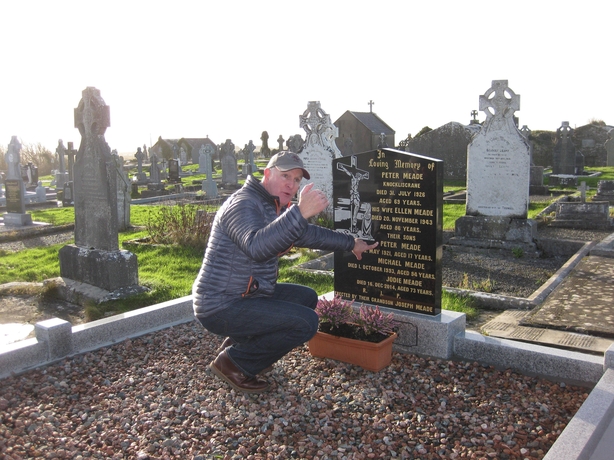In the latest in our series Family Histories, Vincent Quealy tells the story of how the War of Independence arrived in Miltown Malbay - and changed the lives of his relatives, the Meade family, forever
The Irish War of Independence came harshly to Miltown Malbay. Though my grandmother, Bridget (Meade) Quealy, was now safely removed from its dangers, residents of the small town in the West of Clare where she had lived until only a few years prior would soon suffer its scourge. Bridget’s family – the Meade family – would come to know particular hardship and sorrow.
Great Britain emerged from the long and ugly struggle of World War One as the preeminent military power on earth, still able to proclaim both that "Britannia rules the waves" and that the "sun never sets on the British empire." The Armistice had been agreed to in November of 1918 and Britain and its allies had won a decisive and fulsome victory. The British could now attend, uninterrupted, to the "Irish problem".
A military area
Beginning in early 1919, Miltown Malbay was designated by the British as a "Military Area" and the Royal Irish Constabulary (RIC) in the town had been reinforced by British Army regulars.
According to witness Anthony Malone, who in 1955 gave an account of this period,
"The district was subject to all the objectionable restrictions associated with military rule. Fairs and meetings were banned, movements of persons into and outside the area was allowed only on the production of a permit from the sergeants of the RIC, barricades were erected on the roads at different points in the area at which sentries were posted who questioned and searched pedestrians and passengers in carts and motor cars."
Tensions were high across the whole of Ireland and surely so in Miltown Malbay. Expressions of disdain and contempt for British occupiers were common and rarely disguised. The ill-will displayed towards Crown Forces was returned aplenty to the citizens of this little town in County Clare. A deadly confrontation would soon result.

It was early in the evening of September 22, 1920, just hours after IRA Volunteers had successfully ambushed a lorry carrying a number of British troops, that reprisals got underway. Ernie O’Malley recalls in his book Raids and Rallies that
"an old man, Keane, had been carting hay to a rick with his horse and cart. He was found to be a good target for soldiers"….who were now searching for the IRA ambush party …… and they shot him."
War in Miltown Malbay
The violence and horror in Miltown Malbay began near 11:30pm on that Wednesday night. Residents were awakened and startled by rifle shots and by uniformed men shouting in the streets and breaking shop windows and doors. The home of Mr. P.H. O’Neill was the first of many to be targeted that night and it was set ablaze and left to burn completely.
Next, multiple shops in the center of town were vandalized and set on fire, British troops making good and wide-spread use of "petrol" and incendiary devices. The fires were intense and none of the buildings lasted more than thirty minutes before crumbling to the ground.

Looting and destruction continued throughout that long, dreadful night in Miltown Malbay and another eight homes were totally destroyed before soldiers left the town—now very much in ruin—around 5:00am. It was said that no glass could be found in the town except for splinters.
Events in the small town of Miltown Malbay during this period of Ireland’s War of Independence would surely be cast as war crimes today. The cruelty of indiscriminate firing at homes and businesses; of burning houses, shops, farms and crops; of random killings of civilians, no matter the age; modern weapons of war—grenades, machine guns, petrol and incendiaries—all employed against a civilian population appear not very unlike scenes from Ukraine in 2023.
And so it unsettles me to know that the Meade family was there, heard the gunfire, saw the blazes, knew the dead, felt the fear.
Under watch
The Meade household was regularly under watch by the British and was ransacked in a search for weapons more than once as Peter’s activities as an IRA scout - and the activities of brothers Joe and James - brought high suspicion. "My son Joe joined the IRA since it first started…and had arms but was never caught", Ellen Meade once recalled, "although our house was searched three times by the Black & Tans".

British hostility remained an ever-present threat. "My poor husband" Ellen later wrote "got a punch of a rifle one morning when he hadn’t the door opened quick enough…".
Peter, despite his youth, once thought to shield him from British mistrust, came very directly and tragically into danger. It was especially his role as a lookout and messenger in an ambush of a small gathering of "Black & Tans" on March 31, 1921 that drew the scrutiny and the anger of British troops.
"He was", according to statements of Dr. Michael Hillery. "…attacked by British military on two occasions, and owing to their watching him he was afraid to return to his home…"
On the run
While on the run, routinely sleeping outdoors in the hills around Miltown Malbay, Peter contracted "acute pneumonia" and died on May 12, 1921 attended by Dr. Michael Hillery, his mother, Ellen Meade, and sister, Katie Meade. He was eighteen years old.

It was determined that Peter’s death was a direct result of hiding and sleeping in fields and trenches over the course of several cold and wet days and evenings in that early Spring of 1921, made necessary due to the watchful and menacing eye of British troops who were then carefully monitoring his activities.
No funeral for young Peter was ever held, as martial law prevailed across all of County Clare in 1921 and the fear of British troops in the nearby area firing on any large gathering in Miltown Malbay— as they had done before—was real and prevalent.
Only two months had passed since the death of Peters’ older brother, Pvt. Patrick Joseph Meade, resulting from the long-term effects of suffering a German Mustard Gas attack in 1918 near Verdun, France, while serving in the American Expeditionary Forces during World War I.
The two wars which had claimed the lives of Meade brothers in such quick succession were, of course, very different. But the anguish and the grief were very much the same.
Do you have a story to tell about your own family's experience of significant historical events? Find out how to contribute it here.
The views expressed here are those of the author and do not represent or reflect the views of RTÉ










































